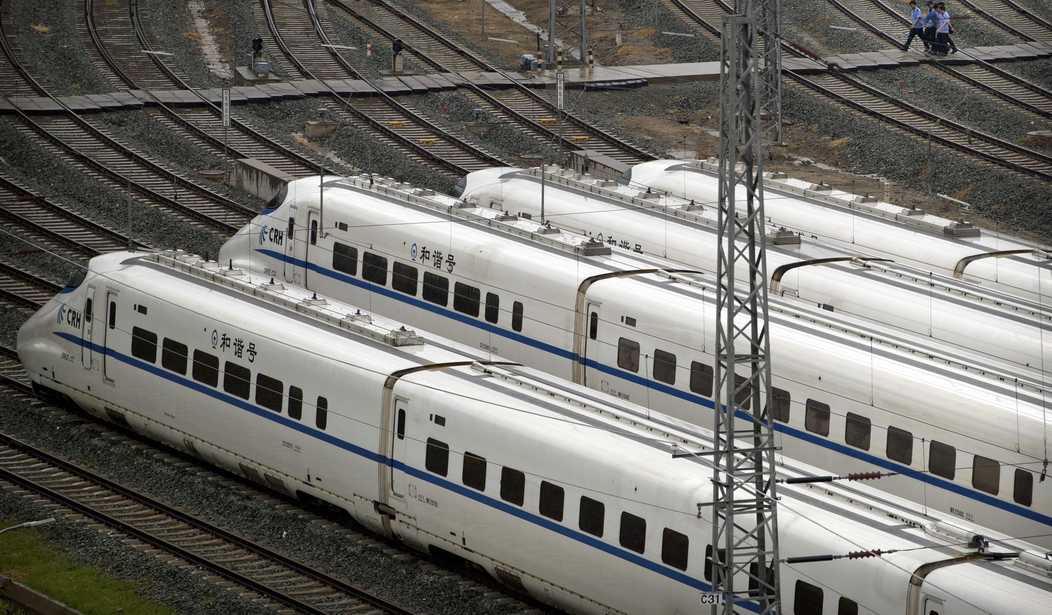A little-known federal agency is hatching big plans that could impact millions of consumers across the country, and not in a good way.
The U.S Surface Transportation Board recently finished a two-day hearing on rail regulations. Content to hold the meeting remotely instead of in their Washington headquarters, the agency’s Democratic majority signaled a clear desire to carry out the recommendation of the Biden administration and force railroads to carry their competitors’ traffic at a rate set by the government instead of the private market.
The push to re-regulate the nation’s railroads comes directly from multinational chemical companies that want to pay less to transport their products. And it comes at the expense of consumers. The public record shows many others object and will suffer too – including parcel delivery companies and their e-commerce customers, organized labor unions, local governments that maintain the highways and even passenger train companies like Amtrak. Nearly 40 organizations who favor fairness and the free market wrote in opposition last month too.
Because there is virtually no part of the economy the transportation sector, including rail, does not ultimately touch, the increased costs would inevitably be passed on to consumers. Americans all lose as Dow Chemical earns more.
At issue is a regulation that would force private rail operators to open their tracks and facilities to their competitors. Proponents at the hearing argued this was no big deal and is simple to facilitate within the broader supply chain, disregarding the views of the companies that actually run the U.S. rail system. By their affirmative comments, the government regulators seemed to do so, too.
Yet a wealth of research and expert input says that forced switching of rail traffic will negatively affect supply chains, which are already under pressure.
Recommended
“We believe that the impact of forced switching to intermodal freight transportation would most likely be: a decline in rail infrastructure; decreased network velocity; a deterioration in domestic intermodal service; and an adverse impact on intermodal’s ability to compete with over-the-road trucking,” says the Intermodal Association of North America, which represents the entire supply chain – including ports.
Moreover, the rule is just bad policy and anti-American: competitors who have invested nothing into building or maintaining a rival’s rail infrastructure are given access and allowed to profit from it.
Not only is that patently unfair and anti-competitive, but it punishes the companies that build and maintain vital transportation infrastructure. Notably, railroads, unlike other modes, pay for their own infrastructure – saving consumers and taxpayers millions annually.
Indeed, as government intervention into rail pricing and routing takes hold, railroads would undoubtedly become less efficient and be less suited to invest in its capital-intensive network, resulting in greater reliance on taxpayer subsidized trucks on our roads and highways.
Research from economists Ike Brannon and Michael Gorman shows that regulation that ultimately reduces rail movements will shift “some of the freight onto trucks and impose costs on the rest of society via increased road congestion, smog and greenhouse gas emissions.”
And researcher Patrick McLaughlin, a former economist with the Federal Railroad Administration, finds that the regulation will put workers at risk as they are forced to handle more rail switches – which is more dangerous than driving freight over a rail track.
Republicans and Democrats rarely agree on anything these days, but they have long tread carefully on making major changes to this well-functioning freight market. Scores of organizations and individuals across the political spectrum wrote to federal policymakers encouraging a continuation of the current regulatory framework that has proven so successful and beneficial to most all Americans. Their letter was 58 pages long – one page and change for the letter, but 57 pages for the bipartisan group of signatories.
“Every ton of freight moved by rail promotes economic development, mitigates pollution, eases worsening highway congestion and saves taxpayers money,” they wrote. “Railroads are four times as fuel efficient as other modes of transport and emit 75 percent fewer greenhouse gases. Additionally, railroads do not require the significant public spending that subsidizes other modes.”
The group implored the Surface Transportation Board “to preserve the delicate regulatory balance” that currently underpins railroads, “allowing freight railroads to innovate, adapt and reinvest in the rail network. Our communities, our businesses and our employees depend on it.”
























Join the conversation as a VIP Member